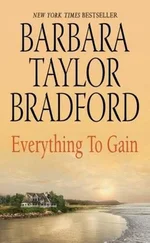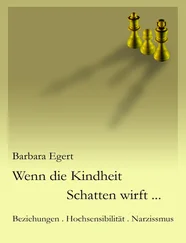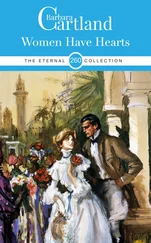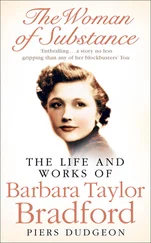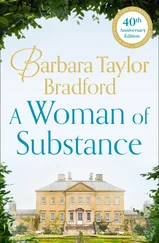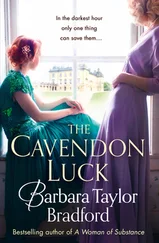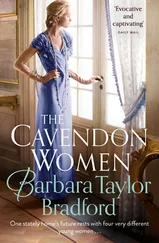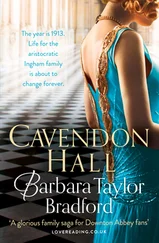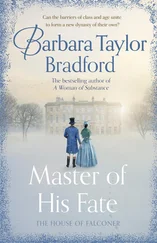‘Murgatroyd didn’t mention no broken goblet ter me,’ interjected Cook peremptorily, glaring at Annie.
‘No, he wouldn’t. But I saw him sweeping it up, ever so quick like,’ Annie replied. ‘He thought I hadn’t seen it ’cos I was scared stiff.’
Cook continued to glare at Annie speechlessly, but Emma sucked in her breath, recognizing instantly the veracity of everything Annie had said. It was the most obvious explanation. ‘Yer not ter repeat that ter anybody, Annie. Yer hear what I say? Not even ter the Squire,’ Emma cautioned gravely. ‘What’s done is done, and the less said, the better.’
‘Emma’s right, luv,’ said Cook, recovering herself. ‘We don’t wants no nasty gossip in the village. Let the poor missis rest in peace.’
Annie nodded. ‘I promise not ter tell owt.’
Emma sighed and was thoughtful. Then she looked pointedly at Cook and said, ‘It’s right funny, when yer think about it. First Polly died, then me mam, and now Mrs Fairley. All in just a few months of each other.’
Cook returned Emma’s concentrated stare. ‘It’s said, in these parts, that everything goes in threes.’
The funeral of Adele Fairley took place later that week. The Fairley mill was closed for the day, and all of the workers were in attendance, along with the servants from the Hall. The small cemetery adjoining Fairley Church overflowed with the villagers, the local gentry, and friends of the family from all over the country.
Two days after the funeral, Olivia Wainright left for London, accompanied by Edwin. Exactly one week later Adam Fairley departed himself, journeying south to join his youngest son at his sister-in-law’s Mayfair town house.
Ernest Wilson was left in charge of the mill, much to Gerald Fairley’s secret delight. For the callous, brainless, and irresponsible Gerald, quite unmoved by his mother’s death, thought only of the infinite opportunities which now presented themselves. He fully intended to assert himself at the mill, and stringently so, in his father’s absence, which he fervently hoped would be prolonged.
On a warm Sunday afternoon, in June of the following year, Edwin Fairley set out from Fairley Hall for the moors. He carried a picnic basket in one hand, laden with all sorts of delicious tidbits from Cook’s groaning pantry, and in the other a sack containing some gardening implements and a few necessary items.
He and Emma had some hard work to do at Ramsden Crags, a task they had been planning for several weeks. Because of the inclement and frequently rainy weather, they had had to postpone this venture several times. On Friday, when Emma went home for her weekend off, Edwin had walked with her as far as the Crags. They had made an assignation to meet there at three o’clock today, the weather permitting.
And the weather does permit, Edwin thought. He glanced up. The pale sun was continually flitting in and out from behind the patchwork of grey and white clouds that littered the powder-blue sky, but there was no hint of rain. Even the light wind barely rustled the trees and the translucent air was so mild it was almost balmy.
Edwin purposely avoided the stables. A few minutes earlier, when he had gone down to the kitchen to collect the picnic basket, he had observed Annie Stead and Tom Hardy chatting and laughing together in the yard. They were courting, so Emma had informed him, and it was more than likely they would have paid no attention to him whatsoever, as immersed in each other as they appeared to be. On the other hand, he did not want to put them to the test, for he had no particular desire to arouse even their mildest curiosity. Not that it was unusual for him to picnic on the moors, but the sack might create a flicker of interest. He walked swiftly through the walled rose garden and out under the clump of old oaks. In a short time he was across the Baptist Field and mounting the slope rising on to the flat plateau of moorland and the narrow track that ran all the way to the Ghyll, and Ramsden Crags beyond.
Edwin breathed deeply, filling his lungs with the pure air, which was so much more bracing on this higher ground. His health was now fully restored and he felt vital again. At the beginning of May he had caught a summer cold, which had settled on his chest and developed into a bronchial condition. After two weeks in the school sanatorium he had been sent home to recuperate at the insistence of the school doctor.
Tom Hardy had driven the carriage over to Worksop to collect him, since his father was away, not an unusual circumstance these days. As far as Edwin could ascertain, his father made only periodic trips to Fairley, when absolutely necessary, and was often in London, or travelling on the Continent attending to unspecified business. However, his father had engaged a tutor for him, so that he would not fall behind in his studies. Although Edwin was a disciplined student, and perfectly capable of working alone, his father had wanted to be certain he sustained his brilliant scholastic record. It had been decided he would go to Cambridge when he was eighteen, to study for the bar under the Downing Professor of English Law at Downing College. Edwin and the tutor were alone at the Hall, except for Gerald and the servants. Edwin did not mind. Actually, he rather relished it. He was pretty much left to his own devices, except for the mornings of intense study with the tutor. Gerald ignored his existence, and barely addressed a remark to him. He was far too busy. Because the mill in Fairley, and the other two in Stanningley Bottom and Armley, took up most of Gerald’s time, the two brothers only saw each other at meals, and not always then. Sometimes Gerald took one of Cook’s packed lunches to the Fairley mill and ate there, an idea so unpalatable to Edwin it positively nauseated him.
Edwin began to whistle merrily as he headed along the ridge to Ramsden Crags, striding out at a brisk pace, his fair hair blowing in the breeze. He was looking forward to seeing Emma, and also to their impending project. Emma had challenged a theory he had about the Crags, and for some reason he felt compelled to prove his point. He wondered if he was being juvenile. Perhaps.
Edwin Fairley, who had just celebrated his seventeenth birthday, now considered himself to be quite grown-up, and he did appear much older than his actual years. This was due, not unnaturally, to the events that had taken place in the past year, not the least of which was his mother’s death, so sudden and tragic. Her passing away had had a more profound effect on him than on his brother, for he had been so much closer and more intimately involved with his mother than Gerald. Edwin’s sorrow was, at first, overwhelming, but being of a scholastic nature and a voracious reader like his father, he had inevitably buried himself in his studies. This intense dedication to learning prevented him from dwelling morbidly on her death, and its appalling circumstances. He had thrown himself, and with a vengeance, into innumerable other school activities, and all manner of sports, and these too had helped him to assuage his grief. They kept him busy from early morning until late at night. Eventually he had been enabled to adopt a more philsophical attitude, and now, finally, he accepted her loss with considerably less heartbreak.
Olivia Wainright had also played a crucial role in Edwin’s development, albeit indirectly but, nonetheless, most effectively. When he visited her in London, for a portion of the school holidays, he was exposed to a wide circle of her friends-politicians, writers, journalists, and artists, many of them celebrated and outstanding men in their fields. These privileged encounters, in a society that was gay, pleasure-loving, and sophisticated, always had a tremendous impact on him. Olivia, aware of his charming manners and acutely attuned to his intelligent mind, made a point of including him at many of her soirées, which he thoroughly enjoyed and at which he executed himself admirably. Consequently, he had matured and had acquired a measure of polish and self-confidence. In certain subtle ways he was quite a different boy from the pampered ‘mummy’s darling’ he had been when Adele was alive.
Читать дальше
Конец ознакомительного отрывка
Купить книгу

